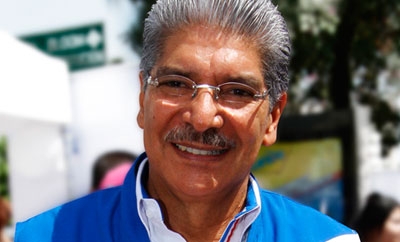Representatives of at least two of El Salvador’s top political parties, including the opposition leader and front-runner in the upcoming presidential elections, have met with the country’s two major gangs, according to the mediator of the ongoing gang truce, raising the question of how much political sway the gangs hold.
Truce arbitrator Raul Mijango told a local television station in an interview that right-wing party ARENA leader and presidential front-runner Norman Quijano, as well as representatives from the incumbent FMLN party, have met with leaders of the country’s two main gangs, the Mara Salvatrucha (MS13) and Barrio 18, reported Contra Punto.
Mijango also stated the gangs are “an elector that can define the result” of presidential elections in March 2014, reported Contra Punto. According to La Pagina, he highlighted the gangs’ ability to mobilize more than 60,000 voters, as well as their ability to disrupt the elections.
Quijano has consistently voiced his opposition to the gang truce — which began in March 2012 — and earlier this month current president Mauricio Funes branded him a “hypocrite” for apparently having already met with the gangs.
InSight Crime Analysis
While all of the candidates in the upcoming elections have publicly distanced themselves from the gang truce — surely driven by its unpopularity among the general population — they are also aware of the ability of the gangs to affect elections. In fact, this is not the first time Quijano has faced accusations of hypocrisy for meeting the gang leaders.
SEE ALSO: El Salvador’s Gang Truce: Positives and Negatives
However, the profundity of the gangs’ political reach is still an unknown. The 60,000 votes Mijango mentioned include only the gang members, not the gangs’ extended families, friends, business associates and sympathizers. Perhaps more importantly, the gangs may sway local votes more than national ones, eventually gaining control of congressional seats and city councils. This would be a good development, if the gangs were already integrated into society, as the truce supposes, and have renounced criminality.
So far that has not happened, and the truce remains an easy target because the gangs continue to extort the general population, progress in the reintegration of gang members has stalled, and homicides are spiking.
However, the political meetings illustrate that the gang truce may have more staying power than previously believed. The truce, engineered by Mijango and now Defense Minister David Munguia Payes, greatly reduced homicides and opened the door for more direct social and economic programs with the gangs. With his statements, Mijango seems to be cautioning the candidates that rash actions to end the truce may lead to unfavorable electoral results and possibly worse.

